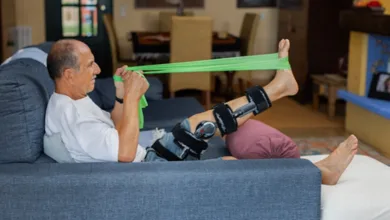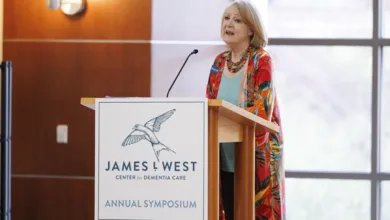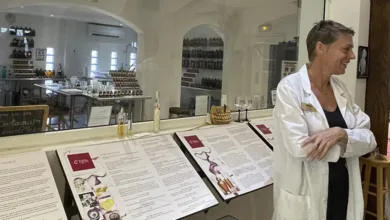Changing Gears Along the Way

Life unfolds as planned, until it doesn’t. You or your loved one miss a step, a word, or an action, and, after enough times, you eventually seek medical advice. A series of questions and lengthy cognitive tests result in an unsettling diagnosis for a 50+ year old in the prime of life.
It’s Alzheimer’s disease.
Young Onset Alzheimer’s affects 200,000 Americans facing a currently untreatable neurological disease. It is a challenging mental and emotional diagnosis for patients and families because people feel they are too young to have it. There is a greater risk of developing the disease as we age (one person in three over the age of 85 will develop Alzheimer’s), but the significance of life changes is greater with younger people. Job loss, depleted income, and ineligibility for Medicare can cause major adjustments to the life you’d planned.
The Alzheimer’s Association offers an eight-week program that helps people navigate these changes, educating those affected about the basics of the disease and providing resources to plan for the future. The program is held in a small group setting, with five partners and two group leaders. The intent is to embrace and validate participants while also supporting new behaviors.
Cammy and David Dunford participated in the spring 2019 session.
“Changing Gears is the first group class we found that addresses the needs of early onset dementias,” they said. “It has given us a sense of what we should be doing now to prepare for the future. We appreciated hearing from an expert in elder law concerning documents we need to have in place.”
A diagnosis of Young Onset Alzheimer’s disease can alter your outlook on life. Remembering that Alzheimer’s is a journey —not a destination — helps people focus on the present. There are many things to navigate, from employment decisions, telling family and friends, and driving considerations, to finding expert medical care and arranging legal and financial affairs.
All of this can be overwhelming. That is why Changing Gears was developed by the National Alzheimer’s Association, in conjunction with contributions from the Early Stage Advisory Committee of the Greater Dallas Chapter and volunteers throughout the country.
In our personal and professional relationships, the most important thing is trust. This is vital when facing a disease for which there is no cure. The group leaders are experienced professionals in the dementia field and recognize the unique journey of each participant and her/his caregiver.
After eight weeks of building relationships, and facing the changes and challenges of living with Alzheimer’s, the group is invited to continue meeting monthly. It helps to have somewhere to turn when you feel no one can possibly understand what you’re experiencing.
“The facilitators, while acknowledging the difficulty of living and dying with the disease, always projected a hopeful and positive outlook,” the Dunford’s said. “We left every meeting feeling lifted and encouraged to live in the moment.”
Relationships formed and journeys shared can become life supports for people diagnosed with Young Onset Alzheimer’s disease.
For more information visit Alz.org





